-
The Pilgrim's Progress
John Bunyan
eBook (Om Books International, June 5, 2020)“What God says is best, is best, though all the men in the worldare against it.”John Bunyan’s The Pilgrim’s Progress (1678, 1684),published in two parts, traces the journey of a mannamed Christian from The City of Destruction(representing earth) to the Celestial City (representingheaven). Christian’s travels are a symbolic representationof a man’s pilgrimage through life. As he journeystowards heaven, Christian meets several characters suchas Pliable, Hopeful, Discretion, Piety, Prudence, andCharity who are the epitome of certain qualities, whichcan hamper or help his progress. Bunyan mixes the loftylanguage of the King James Bible with the colloquiallanguage of his time in this renowned allegorical work.Christian’s journey is imbued with a do-or-die dramaticintensity and Bunyan gives theological concepts fleshand-blood form.The Pilgrim’s Progress has an appealing folktale-like qualityand is rich in insight and humour. An instant publishingsuccess, it had 11 editions within a decade of its originalpublication. It has been translated into 200 languages.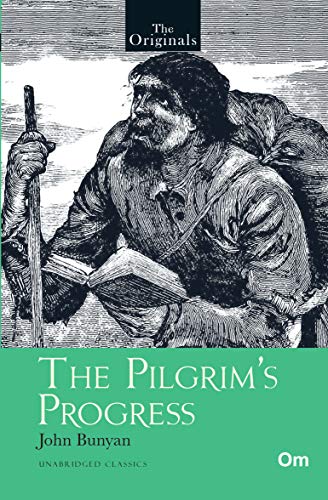
-
The Pilgrim's Progress
John Bunyan
eBook (Positive Action for Christ, June 12, 2018)John Bunyan (28 November 1628 – 31 August 1688) was an English Christian writer and preacher, famous for writing The Pilgrim's Progress. In the Church of England, he is remembered with a Lesser Festival on 30 August. Bunyan was born in Harrowden (one mile southeast of Bedford), in the Parish of Elstow, England. He was baptized John Bunyan, on November 30, 1628 as recorded in the Elstow parish register. The family has a long history in England and the name has been found spelled over thirty-four different ways: Binyan, Buniun, Bonyon, Buignon, being the most common - Bunyan being the most recent. John Bunyan was born to Thomas Bunyan and Margaret Bently; she was also from Elstow and she, like her husband, was born in 1603. They married on May 27, 1627 and in 1628 Margaret's sister, Rose Bently, married Thomas' half-brother Edward Bunyan. (Thomas had married his first wife in 1623 and like his father before him, would marry two more times within months of being widowed.) They were working-class people with Thomas earning a living as a tinker or brazier; one who mends kettles and pots. Bunyan wrote of his modest origins, "My descent was of a low and inconsiderable generation, my father's house being of that rank that is meanest and most despised of all the families of the land". He had very little schooling (about 2–4 years). He was educated at his father's house with other poor country boys and what little education he received was to benefit his father and his own future trade. He followed his father in the Tarish Tinker's trade, which at the time had a reputation as being a lowly sort of occupation and was associated historically with the nomadic lifestyle of gypsies. In 1644, at the age of sixteen, Bunyan lost his mother and two sisters, all who died within months of each other; and his father married for the third time. It may have been the arrival of his stepmother that precipitated his estrangement and subsequent enlistment in the parliamentary army. He served in the parliamentary army at Newport Pagnell garrison (1644-1647) as the civil war was nearing the end of the first stage. He was saved from death by a fellow soldier who volunteered to go into battle in his place and was killed while walking sentry duty[1]. After the civil war was won by The Parliamentarians, Bunyan returned to his former trade and eventually found a wife. In 1649 (when he was about 21), he married a young woman, Mary, whose only dowry appears to have been two books, Arthur Dent's Plain Man's Pathway to Heaven and Lewis Bayly's Practice of Piety, by which he was influenced towards a religious life. She was an orphan, her father leaving only those two books as her inheritance, and their life was modest to say the least. Bunyan writes that they were "as poor as poor might be", not even "a dish or spoon between them". In his autobiographical book, Grace Abounding, Bunyan describes himself as having led an abandoned life in his youth, and as having been morally reprehensible as a result. However, there appears to be no evidence that he was outwardly worse than the average of his neighbours. Examples of sins to which he confesses in Grace Abounding are profanity, dancing and bell-ringing. The increasing awareness of his un-Biblical life led him to contemplate acts of impiety and profanity; in particular, he was harassed by a curiosity in regard to the "unpardonable sin," and a prepossession that he had already committed it. He was known as an adept linguist as far as profanity was concerned, even the most proficient swearers were known to remark that Bunyan was "the ungodliest fellow for swearing they ever heard". While playing a game, Tip-cat, in the village square, Bunyan claimed to have heard a voice that asked: "Wilt thou leave thy sins and go to heaven or have thy sins and go to hell?" He believed it was the voice of God chastising his indulgent ways, as Puritans held sacred the Sabbath day and permitted no sport.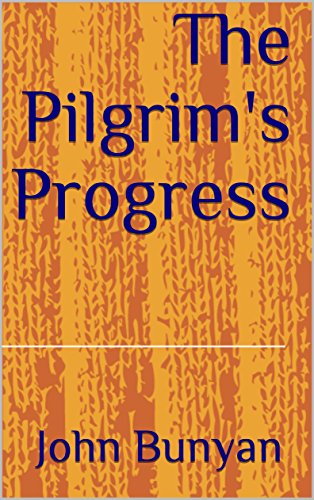
-
The Pilgrim's Progress
John Bunyan
eBook (Passerino, Jan. 27, 2020)The Pilgrim's Progress from This World, to That Which Is to Come is a 1678 Christian allegory written by John Bunyan.It is regarded as one of the most significant works of religious, theological fiction in English literature.It has been translated into more than 200 languages, and has never been out of print. It has also been cited as the first novel written in English.John Bunyan (November 30, 1628 – August 31, 1688) was an English writer and Puritan preacher best remembered as the author of the Christian allegory The Pilgrim's Progress. In addition to The Pilgrim's Progress, Bunyan wrote nearly sixty titles, many of them expanded sermons.
-
The Pilgrim's Progress
John Bunyan
Paperback (Dover Publications, Feb. 10, 2003)Often rated as important as the Bible as a Christian document, this famous story of man's progress through life in search of salvation remains one of the most entertaining allegories of faith ever written. Set against realistic backdrops of town and country, the powerful drama of the pilgrim's trials and temptations follows him in his harrowing journey to the Celestial City.Along a road filled with monsters and spiritual terrors, Christian confronts such emblematic characters as Worldly Wiseman, Giant Despair, Talkative, Ignorance, and the demons of the Valley of the Shadow of Death. But he is also joined by Hopeful and Faithful.An enormously influential 17th-century classic, universally known for its simplicity, vigor, and beauty of language, The Pilgrim's Progress remains one of the most widely read books in the English language.
-
Pilgrim’s Progress
John Bunyan
Paperback (Aneko Press, Jan. 15, 2015)Often disguised as something that would help him, evil accompanies Christian on his journey to the Celestial City. As you walk with him, you’ll begin to identify today’s many religious pitfalls. These are presented by men such as Pliable, who turns back at the Slough of Despond; and Ignorance, who believes he’s a true follower of Christ when he’s really only trusting in himself. Each character represented in this allegory is intentionally and profoundly accurate in its depiction of what we see all around us, and unfortunately, what we too often see in ourselves. But while Christian is injured and nearly killed, he eventually prevails to the end. So can you. The best part of this book is the Bible verses added to the text. The original Pilgrim’s Progress listed the Bible verse references, but the verses themselves are so impactful when tied to the scenes in this allegory, that they are now included within the text of this book. The text is tweaked just enough to make it readable today, for the young and the old. Youngsters in particular will be drawn to the original illustrations included in this wonderful classic.
-
The Pilgrim's Progress
John Bunyan, Reverend Jesse Lyman Hurlbut
language (AmazonClassics, May 7, 2019)Plagued by spiritual anguish, devout everyman Christian fears his fate in the sinful City of Destruction. He’s told that only by embarking for the Celestial City can he achieve personal salvation. After his wife and children refuse to join him, he sets forth alone into the unknown. Mocked for his faith, tempted at every turn, and heartened by fellow pilgrims, Christian’s winding journey toward grace unfolds. But as he reaches Mount Zion, his family chooses to follow the same treacherous path, hoping to join Christian in the shining light.John Bunyan began to write The Pilgrim’s Progress while in prison for nonconformist preaching. His dream-framed allegory, edited in 1909 by American clergyman Jesse Lyman Hurlbut, stands as one of the most profoundly influential novels ever written.Revised edition: Previously published as The Pilgrim's Progress, this edition of The Pilgrim's Progress (AmazonClassics Edition) includes editorial revisions.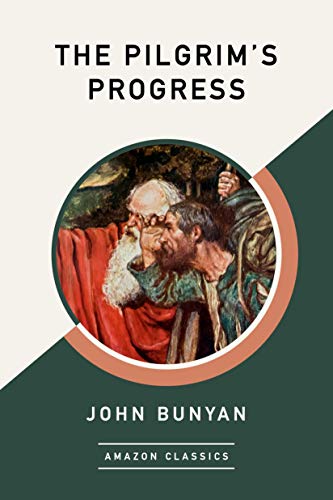
-
The Pilgrim's Progress
John Bunyan, Steve West, Brilliance Audio
Audiobook (Brilliance Audio, May 7, 2019)Plagued by spiritual anguish, devout everyman Christian fears his fate in the sinful City of Destruction. He’s told that only by embarking for the Celestial City can he achieve personal salvation. After his wife and children refuse to join him, he sets forth alone into the unknown. Mocked for his faith, tempted at every turn, and heartened by fellow pilgrims, Christian’s winding journey toward grace unfolds. But as he reaches Mount Zion, his family chooses to follow the same treacherous path, hoping to join Christian in the shining light. John Bunyan began to write The Pilgrim’s Progress while in prison for nonconformist preaching. His dream-framed allegory, edited in 1909 by American clergyman Jesse Lyman Hurlbut, stands as one of the most profoundly influential novels ever written. Revised edition: Previously published as The Pilgrim’s Progress, this edition of The Pilgrim’s Progress (AmazonClassics Edition) includes editorial revisions.
-
The Pilgrim's Progress
John Bunyan
Paperback (CreateSpace Independent Publishing Platform, May 27, 2015)The Pilgrim's Progress from This World to That Which Is to Come; Delivered under the Similitude of a Dream is a Christian allegory written by John Bunyan (1628–1688) and published in February, 1678. It is regarded as one of the most significant works of religious English literature, has been translated into more than 200 languages, and has never been out of print. Bunyan began his work while in the Bedfordshire county prison for violations of the Conventicle Act, which prohibited the holding of religious services outside the auspices of the established Church of England. Early Bunyan scholars like John Brown believed The Pilgrim's Progress was begun in Bunyan's second, shorter imprisonment for six months in 1675,but more recent scholars like Roger Sharrock believe that it was begun during Bunyan's initial, more lengthy imprisonment from 1660–72 right after he had written his spiritual autobiography, Grace Abounding to the Chief of Sinners.
-
The Pilgrim's Progress Illustrated
John Bunyan
eBook (Positive Action for Christ, April 3, 2020)The Pilgrim's Progress from This World, to That Which Is to Come is a 1678 Christian allegory written by John Bunyan. It is regarded as one of the most significant works of religious, theological fiction in English literature.[1][2][3][4] It has been translated into more than 200 languages, and has never been out of print.[5][6] It has also been cited as the first novel written in English.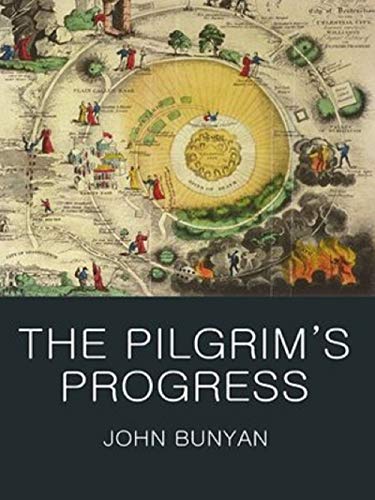
-
The Pilgrim's Progress Illustrated
John Bunyan
eBook (Positive Action for Christ, March 15, 2020)The Pilgrim's Progress from This World, to That Which Is to Come is a 1678 Christian allegory written by John Bunyan. It is regarded as one of the most significant works of religious, theological fiction in English literature.[1][2][3][4] It has been translated into more than 200 languages, and has never been out of print.[5][6] It has also been cited as the first novel written in English.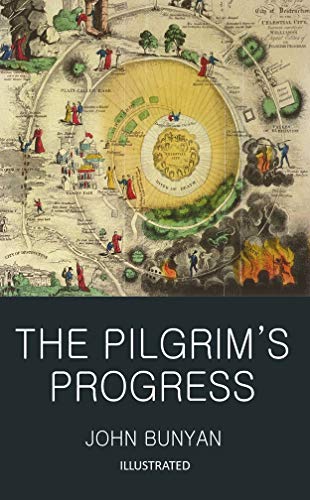
-
The Pilgrim's Progress Illustrated
John Bunyan
eBook (Positive Action for Christ, Feb. 23, 2020)The Pilgrim's Progress from This World, to That Which Is to Come is a 1678 Christian allegory written by John Bunyan. It is regarded as one of the most significant works of religious, theological fiction in English literature.[1][2][3][4] It has been translated into more than 200 languages, and has never been out of print.[5][6] It has also been cited as the first novel written in English.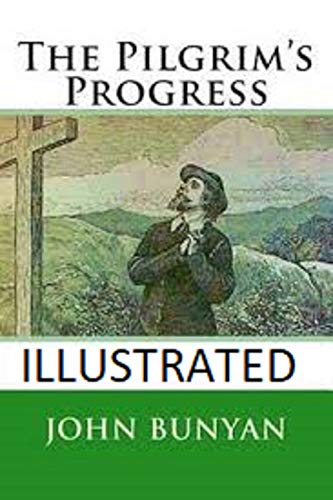
-
The Pilgrim's Progress Illustrated
John Bunyan
eBook (Positive Action for Christ, Jan. 12, 2020)The Pilgrim's Progress from This World, to That Which Is to Come is a 1678 Christian allegory written by John Bunyan. It is regarded as one of the most significant works of religious, theological fiction in English literature.[1][2][3][4] It has been translated into more than 200 languages, and has never been out of print.[5][6] It has also been cited as the first novel written in English.